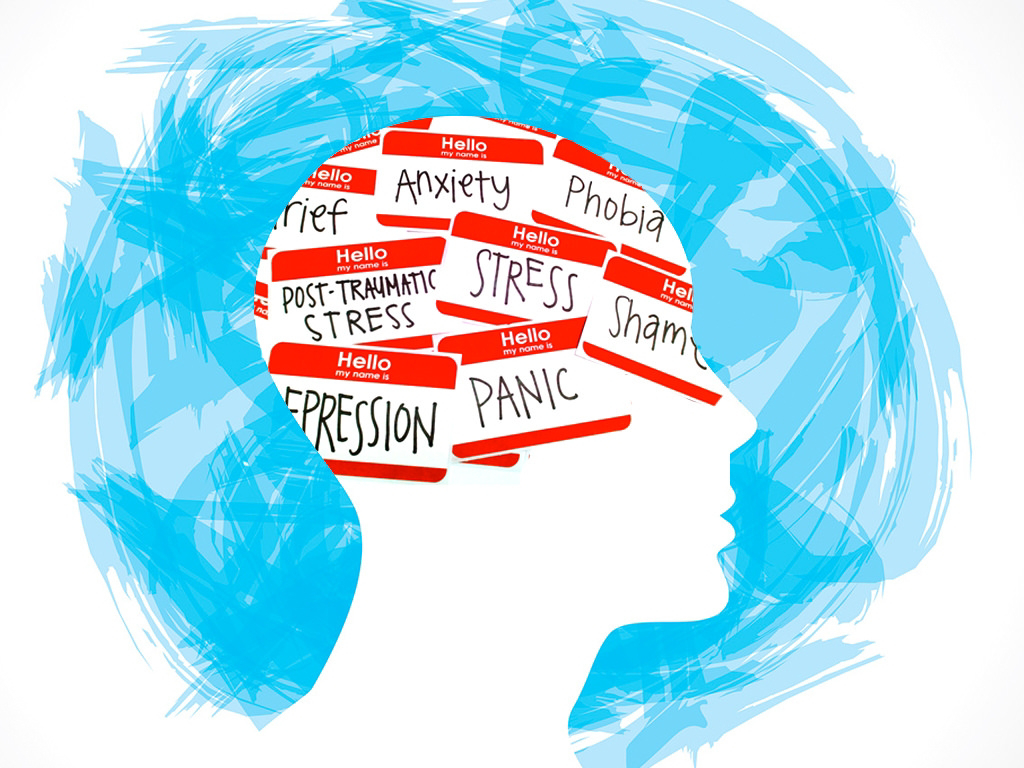Going Through Hell, Fighting Demons: Battling Mental Health Issues
Battling multiple mental health conditions simultaneously.
Living with a mental health condition is often described as navigating a stormy sea with no end in sight. For adults battling a combination of bipolar disorder, anxiety, depression, extreme OCD, and ADHD simultaneously, the challenges can be overwhelming. In case of any childhood trauma, the symptoms can get exacerbated.
In this comprehensive blog post, we will explore the intricate symptoms of each condition, the profound impact they have on relationships, the importance of closure in healing, the challenges with focus and trauma, the risk of substance addiction, the effects of medication, and strategies for combatting these debilitating conditions.
The Symptoms
Each mental health condition presents its own set of symptoms, but when experienced simultaneously, the effects can be magnified. These symptoms can vary in severity and may overlap with other mental health conditions. It's important for individuals experiencing these symptoms to seek professional evaluation and support for accurate diagnosis and treatment. Early intervention and appropriate management strategies can help individuals effectively manage their symptoms and improve their quality of life
1. Bipolar disorder is characterized by alternating periods of manic (or hypomanic) episodes and depressive episodes.
Symptoms of mania/hypomania may include:
- Elevated mood, feeling euphoric or irritable
- Increased energy and activity levels
- Racing thoughts, rapid speech
- Decreased need for sleep
- Impulsive behavior, risky decision-making
- Grandiosity, inflated self-esteem
Depressive symptoms may include:
- Persistent feelings of sadness or emptiness
- Loss of interest in previously enjoyable activities
- Fatigue or loss of energy
- Changes in appetite or weight
- Sleep disturbances (insomnia or hypersomnia)
- Feelings of worthlessness or excessive guilt
- Thoughts of death or suicide
2. Anxiety disorders encompass a range of conditions characterized by excessive worry, fear, or apprehension. Common types include generalized anxiety disorder (GAD), panic disorder, social anxiety disorder, and specific phobias. Symptoms may vary depending on the specific type of anxiety disorder but can include:
- Excessive worry or anticipation of future events
- Restlessness, feeling on edge or tense
- Difficulty concentrating or focusing
- Irritability
- Muscle tension
- Sleep disturbances
- Panic attacks (sudden onset of intense fear or discomfort, accompanied by physical symptoms such as palpitations, sweating, trembling, shortness of breath)
- Avoidance of triggers or situations that provoke anxiety
3. Depression is characterized by persistent feelings of sadness, hopelessness, and a loss of interest in activities once enjoyed. Symptoms may include:
- Persistent low mood or sadness
- Loss of interest or pleasure in activities
- Changes in appetite or weight
- Sleep disturbances (insomnia or hypersomnia)
- Fatigue or loss of energy
- Feelings of worthlessness or excessive guilt
- Difficulty concentrating or making decisions
- Thoughts of death or suicide
4. OCD is characterized by intrusive, unwanted thoughts (obsessions) and repetitive behaviors or rituals (compulsions) performed in an attempt to alleviate anxiety or prevent a feared outcome. Symptoms may include:
- Obsessions (e.g., fear of contamination, intrusive thoughts of harm or violence, excessive concern with symmetry or order)
- Compulsions (e.g., hand-washing, checking, counting, arranging)
- Distress or anxiety related to obsessions
- Time-consuming rituals that interfere with daily functioning
- Difficulty resisting or controlling compulsive behaviors
5. ADHD is characterized by persistent patterns of inattention, impulsivity, and hyperactivity that interfere with functioning or development. Symptoms may include:
- Inattention (e.g., difficulty sustaining attention, easily distracted, forgetfulness)
- Hyperactivity (e.g., fidgeting, restlessness, difficulty sitting still)
- Impulsivity (e.g., acting without thinking, interrupting others, difficulty waiting turn)
- Difficulty organizing tasks or activities
- Forgetfulness, losing items necessary for tasks
- Difficulty following through on instructions or completing tasks
Impact on Relationships:
Managing these conditions while maintaining relationships, especially within a family dynamic, can be immensely challenging. Mood swings and unpredictable behavior stemming from bipolar disorder can strain relationships, leading to misunderstandings and conflict. Anxiety and depression may cause individuals to withdraw from social interactions and struggle with expressing emotions, creating distance between family members. Extreme OCD can disrupt daily routines and interpersonal connections, as compulsions take precedence over relationships. ADHD-related impulsivity and forgetfulness can also contribute to communication breakdowns and frustration among family members.
The Importance of Closure
Closure plays a crucial role in the healing process for individuals battling multiple mental health conditions. Without closure, unresolved trauma and painful experiences can feel suffocating, exacerbating feelings of hopelessness and despair. The inability to find closure may lead to suicidal ideation as individuals struggle to find relief from their emotional turmoil. Seeking closure through therapy, journaling, or confronting past traumas can be pivotal in fostering healing and moving forward in the recovery journey.
Challenges with Focus and Trauma
Individuals contending with bipolar disorder, anxiety, depression, OCD, and ADHD often face significant challenges with focus and memory retention. The persistent intrusive thoughts associated with OCD and the fluctuating moods of bipolar disorder can make it difficult to concentrate on tasks or retain information. Additionally, unresolved trauma from past experiences can further impair cognitive functioning, leading to rumination and emotional distress.
Potential for Substance Addiction
In an attempt to cope with the overwhelming symptoms of their mental health conditions, individuals may turn to substance abuse as a form of self-medication. Alcohol, drugs, or other addictive behaviors may provide temporary relief from emotional pain, but ultimately exacerbate the underlying issues and lead to a cycle of dependency. Substance addiction further complicates the recovery process and increases the risk of co-occurring mental health disorders.
Addressing Trauma from Others
Those responsible for causing trauma to individuals battling multiple mental health conditions are often described as monsters. Whether through abuse, neglect, or other harmful actions, these individuals inflict lasting emotional scars that exacerbate existing mental health struggles. Acknowledging and confronting the trauma caused by others is essential for healing and breaking free from the cycle of victimization.
Side Effects of Medication
While medication can be a valuable tool in managing symptoms, it often comes with a range of side effects that can impact individuals' quality of life. Common side effects of psychiatric medications may include weight gain, fatigue, sexual dysfunction, and cognitive impairment. Finding the right balance of medication to alleviate symptoms while minimizing side effects is a delicate process that requires close monitoring and collaboration with healthcare providers.
Combatting These Conditions
Despite the formidable challenges posed by bipolar disorder, anxiety, depression, extreme OCD, and ADHD, there are strategies for combatting these conditions and reclaiming one's life. These strategies may include:
1. Therapy
Seeking professional therapy, such as cognitive-behavioral therapy (CBT), dialectical behavior therapy (DBT), or exposure therapy, can help individuals develop coping skills, process trauma, and manage symptoms effectively.
2. Medication Management
Working closely with a psychiatrist to find the right combination of medications and dosage adjustments can help alleviate symptoms while minimizing side effects.
3. Support Groups
Connecting with others who share similar experiences through support groups or online communities can provide validation, empathy, and encouragement on the recovery journey.
4. Self-Care Practices
Prioritizing self-care activities such as exercise, mindfulness, journaling, and creative expression can help individuals manage stress, regulate emotions, and foster a sense of well-being.
5. Healthy Lifestyle Choices
Maintaining a balanced diet, getting regular exercise, practicing good sleep hygiene, and avoiding substance abuse can support overall mental and physical health.
6. Mindfulness and Relaxation Techniques
Incorporating mindfulness meditation, deep breathing exercises, and progressive muscle relaxation into daily routines can help individuals reduce anxiety, manage stress, and cultivate a greater sense of calm.
7. Setting Boundaries
Establishing boundaries in relationships and learning to assert one's needs can help protect mental and emotional well-being while fostering healthier interpersonal dynamics.
Battling bipolar disorder, anxiety, depression, extreme OCD, and ADHD simultaneously is an arduous journey fraught with challenges, but it is not insurmountable. By understanding the symptoms, addressing the impact on relationships, seeking closure, confronting trauma, and implementing effective coping strategies, individuals can navigate these conditions with resilience and hope. It is essential to remember that healing is a gradual process, and support from healthcare professionals, loved ones, and community resources is invaluable along the way. With dedication, self-compassion, and perseverance, individuals can reclaim their lives and thrive despite the formidable obstacles they face.




Comments
Post a Comment